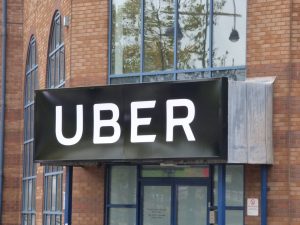Further Attacks on Employment Arbitration

 Yesterday, Greg Bensinger reported in the Wall Street Journal that Uber Technologies Inc. is “ending the company’s use of the widespread but controversial practice of mandatory arbitration for claims of sexual harassment and assault.” The company apparently required arbitration for both employee claims and claims by its customers. The change, however, apparently relates only to claims regarding sexual misbehavior. Matters of pay inequity or race are still bound by Uber’s mandatory-arbitration clause, as are class-action matters, even in cases of sexual misconduct.
Yesterday, Greg Bensinger reported in the Wall Street Journal that Uber Technologies Inc. is “ending the company’s use of the widespread but controversial practice of mandatory arbitration for claims of sexual harassment and assault.” The company apparently required arbitration for both employee claims and claims by its customers. The change, however, apparently relates only to claims regarding sexual misbehavior. Matters of pay inequity or race are still bound by Uber’s mandatory-arbitration clause, as are class-action matters, even in cases of sexual misconduct.
The article also reported that Uber’s rival Lyft Inc. also committed to ending the practice of forced arbitration for its employees, riders and drivers. A spokesman for Lyft was quoted to say “Uber made the good decision to adjust their policies. We agree with the changes.”
The article goes on to make statements such as “Legal experts say mandatory-arbitration clauses may lead some victims to walk away from harassment or discrimination claims, in part because they can’t find plaintiffs’ lawyers to take their cases because many work for contingency fees.”
The article also noted that “Microsoft Corp. ended the practice of forced arbitration for sexually related claims in December, affecting hundreds of mostly senior executives. The company also said it would throw its support behind a federal bill co-sponsored by Sen. Lindsey Graham of South Carolina and Sen. Kirsten Gillibrand of New York that would do away with mandatory arbitration.”
These prominent corporations appear to be making decisions based on faulty assumptions, and in doing so, are not only hurting themselves and their employees but also setting a bad example for other companies and gullible legislators. The list of reasons why the attackers of arbitration are wrong and why its elimination will hurt all workers (at the expense only of bad workers and consumer attorneys) is long and detailed. I will save them for now in this short blog and only say, get informed before you follow the lead of Uber, Lyft and Microsoft.
